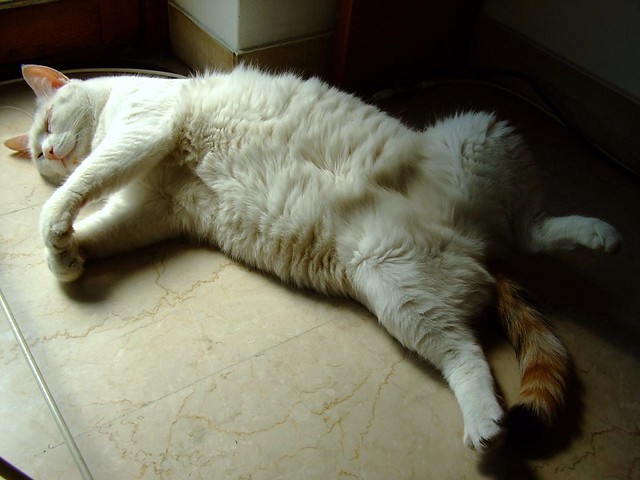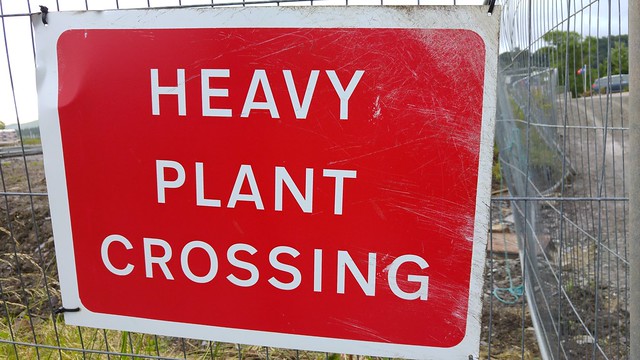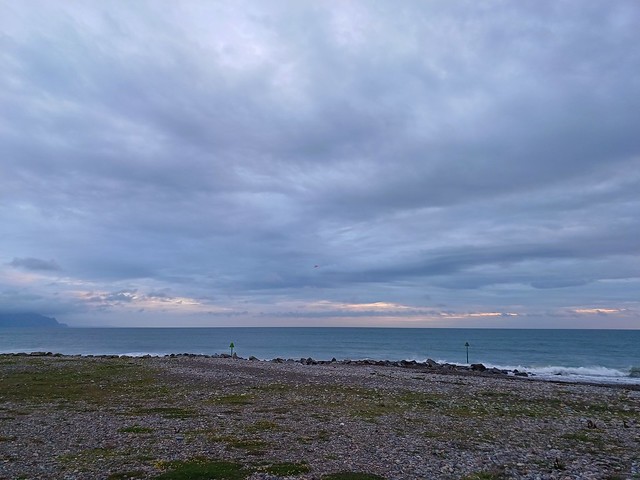Words for legs, feet and related things in Celtic languages.
Words marked with a * are reconstructions.
| Proto-Celtic | *koxsā = foot, leg |
|---|---|
| Old Irish (Goídelc) | cos(s) [kos] = foot, leg |
| Middle Irish (Gaoidhealg) | cos, cas = foot, leg, stem, support, handle, shaft, infantry cosach = pertaining to feet or legs, long-legged |
| Irish (Gaeilge) | cos [kɔsˠ] = leg, foot; handle, shaft, stem; lower end cosán = path, footway, track, way, passage, direction cosarálaí = trampler, clumsyfooted person coiscéim = footstep coisí = pedestrian |
| Scottish Gaelic (Gàidhlig) | cas [kas] = foot, trotter; leg; handle, shaft shank (of a fishing hook casach [kasəx] = (many-)footed, legged, abounding in feet casachan [kasəxan] = pedal, treadle cos [kɔs] = foot, leg, handle, shaft |
| Manx (Gaelg) | cass [kaːs] = leg, barrel, foot, shaft, peg, bottom, outlet, mouth of river, stalk, hilt, stem of a pipe, crop of a whip cassagh = footed, pedal, spiral, objective kass = foot |
| Proto-Brythonic | *koɨs = leg, shank, stem |
| Middle Welsh (Kymraec) | coes = leg, shank koescyn = leg, shank, stalk, stem |
| Welsh (Cymraeg) | coes [koːɨ̯s / kɔi̯s / koːs] = leg, shank; handle, haft, stem, stalk coes = little leg coesgyn = leg, shank, stalk, stem coesi(o) = to run away, leg it, walk, stride |
| Cornish (Kernewek) | koos = leg |
Etymology: from Proto-Indo-European *koḱs- (joint) [source]. Words from the same PIE root include cushion in English, Hachse (hock, shank, knuckle, leg) in German, coxa (thigh, drumstick) in Portuguese, and cuisse (thigh) in French [source].
| Proto-Celtic | *tregess = foot |
|---|---|
| Gaulish | treide = foot |
| Old Irish (Goídelc) | traig [traɣʲ] = foot (part of body / measurement), step |
| Middle Irish (Gaoidhealg) | traig = foot, step |
| Irish (Gaeilge) | troigh [t̪ˠɾˠɪɟ / t̪ˠɾˠɔ / t̪ˠɾˠiː] = foot (part of body / measurement), step troitheach = foot-soldier, pedestrian troitheán = pedal, treadle troithíocht = sound of footsteps |
| Scottish Gaelic (Gàidhlig) | troigh [trɔç] = foot (part of body / measurement), sole of foot troighean = pedal |
| Manx (Gaelg) | trie [strɛin] = foot, sole, twelve inches |
| Middle Welsh (Kymraec) | troed, troet = foot troeduet, troetued, troydvedd = foot (measurement) troedaỽc, troedauc, troediog, troedyavc, troydawc = having a foot, footed, walking, ambulant, nimble-footed, sure-footed |
| Welsh (Cymraeg) | troed [troːɨ̯d / trɔi̯d] = foot, shaft, handle, bottom, base, pedestal, foundation, extremity, end, stalk, foot-joint troed-droed, troetroed = step by step, in step (with) troedfa = pavement, foundation, base troedfedd = foot (measurement) troedfys = toe troedffordd = footpath, footway troediad = step, pace, walk, gait, kick troed(i)o = to tread, step, walk, tample (on), plod, trudge troed(i)og = having a foot, footed, walking, ambulant, nimble-footed, sure-footed |
| Old Cornish | truit = foot |
| Middle Cornish | trois, tros, trôs = foot troishys = foot (length) |
| Cornish (Kernewek) | troos [tro:z / tru:z] = foot, on foot troos-hys, troos-hes = foot (length) |
| Old Breton | treit, treyt = foot |
| Middle Breton | troat = foot troatet = foot (length) |
| Breton (Brezhoneg) | troad [trwɑːt] = foot, handle troadeg = with big feet, infantryman, pedestrian troadek [ˈtrwɑː.dɛk] = having big feet, having a foot troadikell [trwa.ˈdikː.ɛl] = pedal troadikellañ [trwa.di.ˈkɛlː.ã] = to pedal troadikeller [trwa.di.ˈkɛlː.ɛr] = pedalboard. pedaler troatad [ˈtrwatː.at] = foot (length) |
Etymology: from Proto-Indo-European *tregʰ- (to run, walk), apparently a variant of *dʰregʰ- (to run, drag, pull) [source]. Words from the same roots include drag, draw, train and treaty, and droichead (bridge) in Irish [source].
| Proto-Celtic | *garros = shank, leg, calf |
|---|---|
| Gaulish | *garra = leg |
| Old Irish (Goídelc) | gairr = calf of the leg |
| Middle Irish (Gaoidhealg) | gairr, gair = calf of the leg |
| Proto-Brythonic | *garr = shank, calf of the leg |
| Middle Welsh (Kymraec) | garr, gar = leg, shank, thigh, ham, hough |
| Welsh (Cymraeg) | gar [ɡar] = leg, shank, thigh, ham, hough gar(r)an = leg, shank, shaft, axle garanu = to fix a shank or handle, to fit with a shaft or axle, to crane |
| Middle Cornish (Cernewec) | gar = shank, leg |
| Cornish (Kernewek) | garr [ɡarː/ɡɒr] = leg, stem garren = calf, stalk |
| Middle Breton (Brezonec) | gar, garr = leg, paw |
| Breton (Brezhoneg) | gar [ɡɑːr] = leg, paw garegenn = leg (of trousers) gargen = leg warmer gallek [ˈɡa.rːɛk] = (having) long legs |
Etymology: possibly from Proto-Indo-European *ǵʰs-r- (hand), from *ǵʰes- (hand, to take, give in exchange) [source]. Words from the same Proto-Celtic root include garra (shank, claw, talon) in Catalan, jarret (hough, hock) in French, garter (a band worn around the leg to hold up a sock or stocking) in English, and garra (claw, talon, paw, hook, passion, dedication) in Spanish [source].
Words from the same Proto-Info-European roots include dorë (hand) in Albanian, paže (arm) in Czech, and host (the consecrated bread of the Eucharist) in English [source].
Sources: Wiktionary, Etymological Dictionary Of Proto Celtic, In Dúil Bélrai English – Old Irish glossary, eDIL – Electronic Dictionary of the Irish Language, Teanglann.ie, Am Faclair Beag, An etymological dictionary of the Gaelic language, Fockleyreen: Manx – English Dictionary, Online Manx Dictionary, Gaelg Corpus, Geiriadur Prifysgol Cymru, Lexicon cornu-britannicum : a dictionary of the ancient Celtic language of Cornwall, Gerlyver Kernewek, Devri : Le dictionaire diachronique du breton, Dictionaire Favereau, TermOfis











